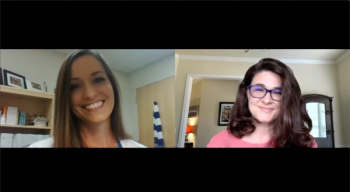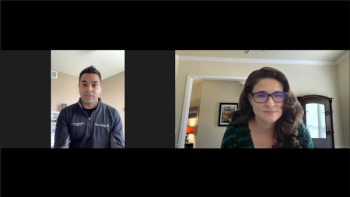
Diagnostic Imaging's Weekly Scan: May 29, 2020

Diagnostic Imaging's Weekly Scan: May 29, 2020

Diagnostic Imaging's Weekly Scan: May 22, 2020

Diagnostic Imaging's Weekly Scan: May 15, 2020





[VIDEO] IT and radiology have to prepare for big data, together.

[VIDEO] Leonard Berlin, MD, talks malpractice at ACR 2016.

[VIDEO] Insight from the inside of a radiology group merger, from RBMA 2016.

[VIDEO] What radiology practices need to know about PQRS, explained by Michael Bohl at RBMA 2016.

[VIDEO] CHICAGO-Among other challenges, enterprise imaging forces different groups to work together, according to Jef Williams of Ascendian Healthcare Consulting.

[VIDEO] CHICAGO-Insight and advice about medical malpractice in radiology, from Michael Raskin, MD, MPH, JD.

[VIDEO] CHICAGO-Tips from Lawrence Muroff, MD, for radiology practices on negotiating hospital contracts.

[VIDEO] CHICAGO-Evidence-based design practices in radiology can increase patient satisfaction, Carlos Amato said at RSNA 2015.

[VIDEO] What radiologists need to know about finances.

[VIDEO] Insight into retirement in radiology.

We've stumped you before, so give them another try: our 5 hardest Image IQs.

[VIDEO] Radiology needs leaders. Do you have what it takes to be one?

[VIDEO] Radiology is struggling to understand what is quality and value.

[VIDEO] Advice for staying on top of the ever-changing radiology-specific codes.

[VIDEO] Radiology is at a crossroads and the first issue to be dealt with is change, says Sanjay Jain, MD, MBA.

[VIDEO] Addressing quality improvement in radiology while changing how we care for patients.

[VIDEO] Like it or not, it’s time for radiology professionals to prepare for ICD-10. Here, Melody Mulaik offers tips on navigating the implementation.

[VIDEO] Merging health records and PACS can improve radiologists’ workflow. Cree M. Gaskin, MD, discusses the benefits and challenges of a new system.

VIDEO: Residents must understand it is radiologists’ responsibility to ensure the right tests are being performed at the right time. It’s a culture shift they should embrace, said Vijay Rao, MD.

VIDEO - Consultant Jef Williams details the four areas driving change in healthcare for radiologists.

VIDEO: What’s behind the imaging operations mergers and acquisitions? Brian Baker discusses the why and what to do about medical imaging consolidation.

VIDEO: Radiology facilities are increasing their focus on patient satisfaction. Consultant Jamie Verkamp discusses qualities of patient-facing employees.

VIDEO: Mark Flyer, MD, CIIP, of Maimonides Medical Center, shares the experiences and lessons learned when his facility implemented a critical test results management system.